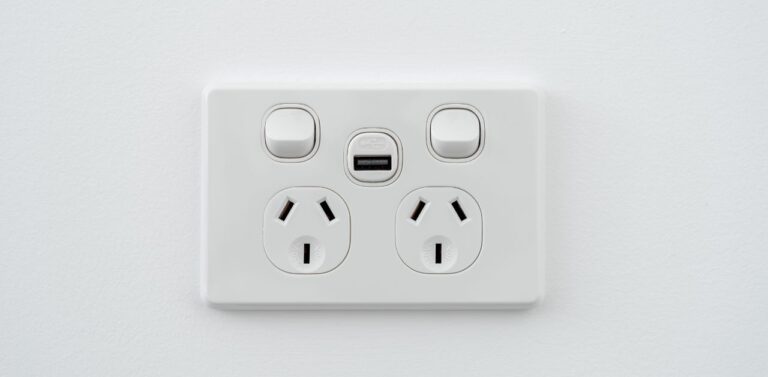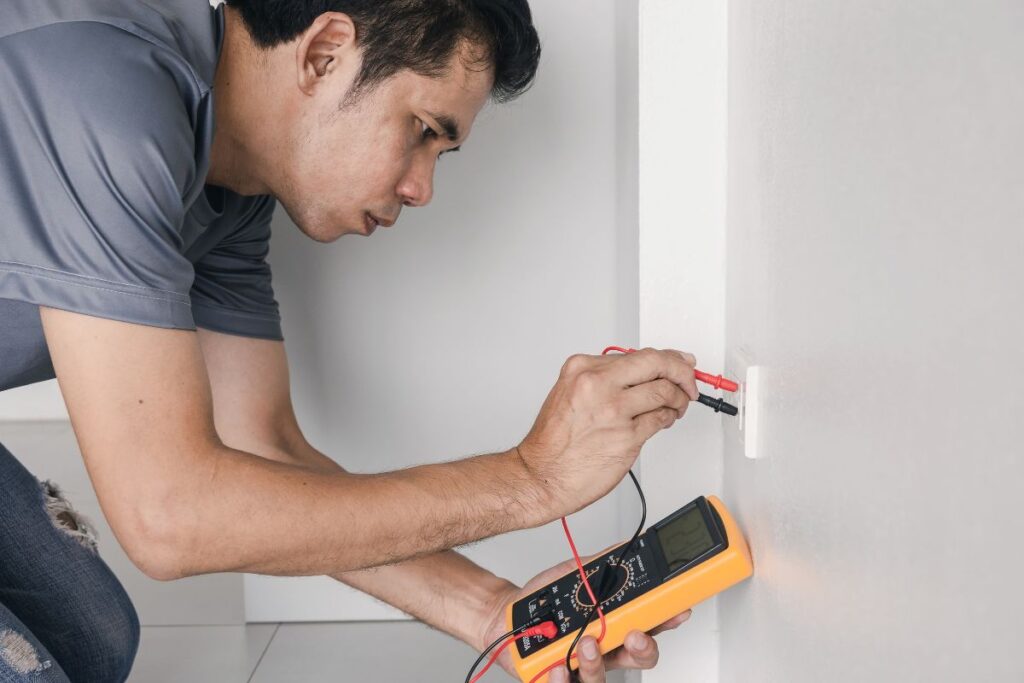
Table of Contents
ToggleIt’s easy to overlook the silent hazards lurking at knee-level, such as electrical outlets. These everyday essentials, while vital for powering our lives, pose serious risks to curious toddlers. In Australia, an alarming 77% of electrical injuries in children occur in the home, making everyday outlets a serious safety concern. These incidents are not only common but largely preventable. This highlights the need to childproof electrical outlets at home.

At Tailored Power, we’re not just here to ensure your home runs efficiently; we’re here to help create safe, comfortable environments where your children can thrive.
Whether you’re a new parent or simply preparing your home for visiting family, understanding how to properly childproof your electrical outlets is an important step in safeguarding your loved ones. In this guide, we’ll walk you through practical solutions, tips, and expert advice designed to make your home both safer and smarter.
Electrical accidents are one of the leading causes of injury for young children at home. A child’s natural curiosity means sockets and plugs are especially tempting, often seen as mysterious holes to poke fingers or objects into. However, a single incident can lead to serious harm, including burns, electric shock, or worse.
Thankfully, preventing these accidents doesn’t require a major renovation. With a bit of foresight and the right tools, you can effectively childproof electrical outlets in every room of your home.

When planning to childproof your electrical outlets, it’s essential to choose the right method based on your lifestyle, usage needs, and your children’s age. Below are some of the most effective options:
These are simple plug-in caps that block access to unused sockets. They’re inexpensive and widely available. However, they can be easily removed by older toddlers, and they present a choking hazard if left lying around.
One of the most reliable choices, sliding plate covers replace your existing outlet plate. They automatically close when not in use, making it nearly impossible for small fingers to access live contacts. Since they are built-in, they offer both safety and convenience.
If you have plugs that remain connected most of the time, such as for a fridge or home Wi-Fi, use a lockable outlet box. This clear casing encloses the entire plug and socket, deterring any interference from young children.
Ideal for families upgrading or renovating their home, these outlets contain internal shutters that block access unless equal pressure is applied to both prongs. It’s a brilliant long-term solution and is becoming standard in new home builds.
Loose cords can be just as dangerous as the outlets themselves. Use cord shorteners, covers, or wraps to keep cables tidy and out of reach. Not only does this reduce tripping hazards, but it also eliminates temptation for little hands.
Creating a safe environment requires a tailored approach in each room. Here’s how to tackle your home one space at a time:
While childproofing sockets is crucial, holistic electrical safety means going a step further. Here are a few best practices:
Better still, opt for integrated solutions where safety and performance go hand in hand.
Childproofing goes beyond what we see, hidden electrical faults behind outlets can be just as hazardous to young children as exposed sockets. That’s why engaging in Tailored Power’s Fault Finding services is a wise step for any safety-conscious household. Using cutting-edge diagnostics such as circuit-breaker testing and thermal imaging, our licensed technicians can identify issues early, helping to ensure your electrical system is both compliant and genuinely child-safe.
On the other hand, if you’re settling into your second or third home, there’s no better time to future-proof your space. Older switchboards, worn-out power points and overloaded circuits not only impact efficiency but significantly heighten the risk of electrical faults or fire. Tailored Power’s Power and Lighting Upgrades offer complete electrical services designed with family safety and modern living in mind. From tamper-resistant outlets and switchboard upgrades to energy-efficient solar integration, we deliver reliable power solutions that support both peace of mind and sustainable living.

Childproofing your electrical outlets is a straightforward yet impactful way to protect your family. From simple plug covers to smart outlet upgrades, there’s a solution for every home. And when you work with a team who understands the full picture, safety, comfort, sustainability, and design; the result is peace of mind you can trust.
Your family’s safety is too important to leave to chance. Get in touch with us and schedule an inspection to ensure your home is not only stylish and efficient, but truly secure for the ones who matter most. It pays to learn more about how you can keep your home’s electrical outlets safe through fault-finding and more.
Step into a world of ultimate comfort and unmatched energy savings with our custom-designed heating and cooling solutions. Take the first step towards a smarter, greener home—request your free, personalised quote today and embrace the Tailored Difference!